Vanity units are often the first thing that people think of when they want to plan a bathroom in a way that is both stylish and useful. It’s more than just a sink and a mirror. If you build your vanity right, it can change the whole feel of your bathroom.
A 96-inch vanity is the best choice if you want to make a room that is light, airy, and clean. It makes sense that this big vanity is more than just pretty, since it has a lot of counter room and storage built in.
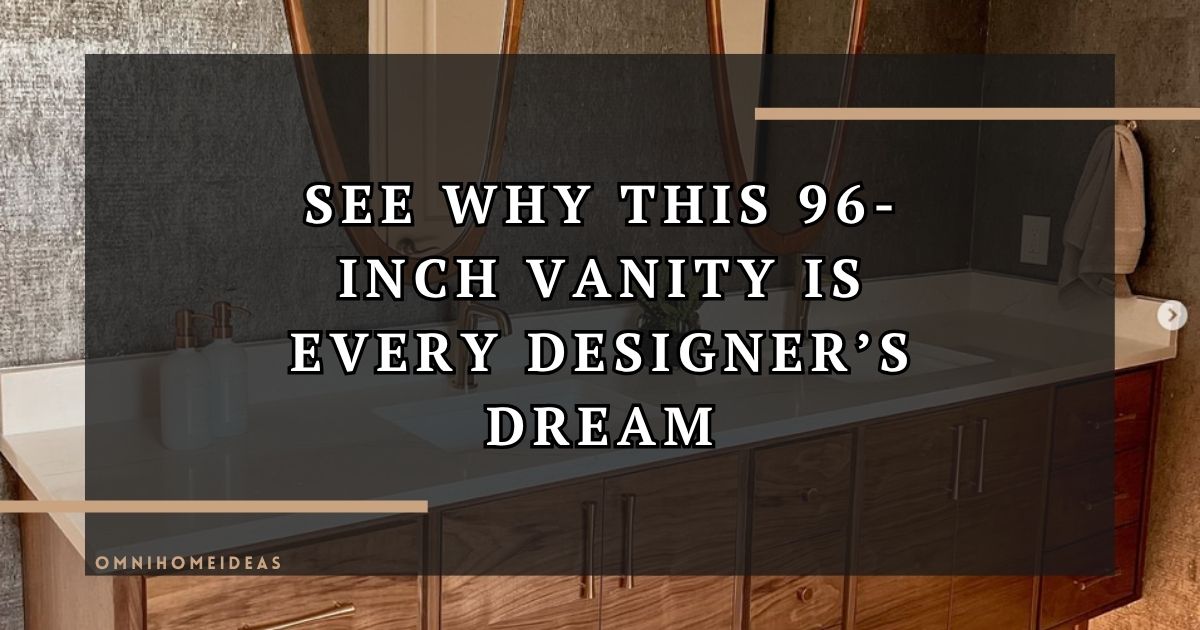
A Statement Piece That Shapes the Tone
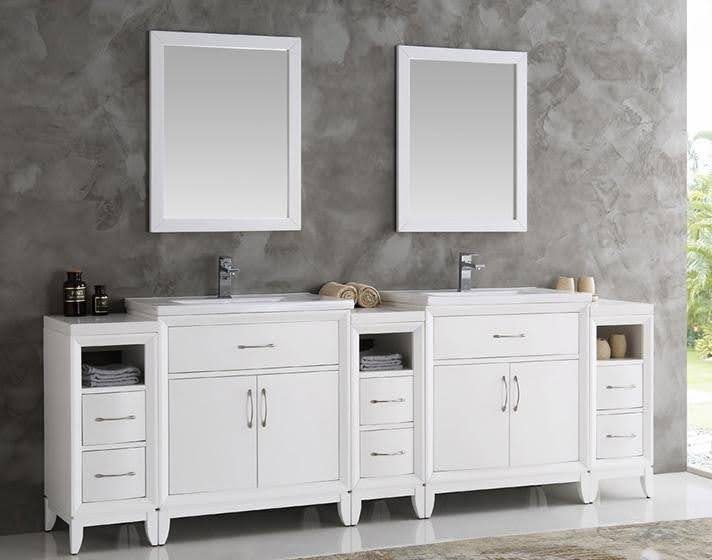
Any bathroom will feel like a spa when you add a 96-inch vanity. Simply by virtue of its dimensions, it commands attention with its streamlined, cohesive appearance.
This vanity will make a strong statement whether you’re designing a master suite or updating a shared bathroom with your loved ones. Unlike smaller, more traditional vanities, it exudes an air of authority, glitz, and premium taste.
These days, everyone loves to personalize their bathrooms, so it’s crucial to choose a vanity that complements your taste and lifestyle. If you’re a homeowner who despises plain old utilitarian layouts, a 96-inch vanity is a great aesthetic and functional alternative for you.
Plenty of Space to Avoid Cluttering

You should know that a 96″ bathroom vanity provides an enormous quantity of storage space, which is one of its most useful features. There is more than enough room to store all of your personal care supplies, including towels, toilet paper, shampoo, conditioner, and hair dryer, thanks to the many drawers, cabinets, and integrated shelves available to you.
The days of disorganized medicine cabinets and counters are over. Particularly helpful for families with multiple active members, its open layout allows for the assignment of specific storage spaces to each family member. Now, even couples who share a bathroom may keep their personal items organized and out of each other’s way.
With thoughtfully designed drawers for hairdryers and skincare equipment, as well as specialized spaces for makeup and razors, a vanity may greatly reduce the amount of clutter you encounter on a daily basis. Additionally, that leads to a state of tranquility.
Two-Sink Sets for Common Areas
It is possible to expand most 96-inch vanities to include two sinks, making them ideal for shared bathrooms. Whether it’s multiple children brushing their teeth before bed or two adults getting ready for work, having a dual sink makes the morning routine go more easily and reduces waiting time.
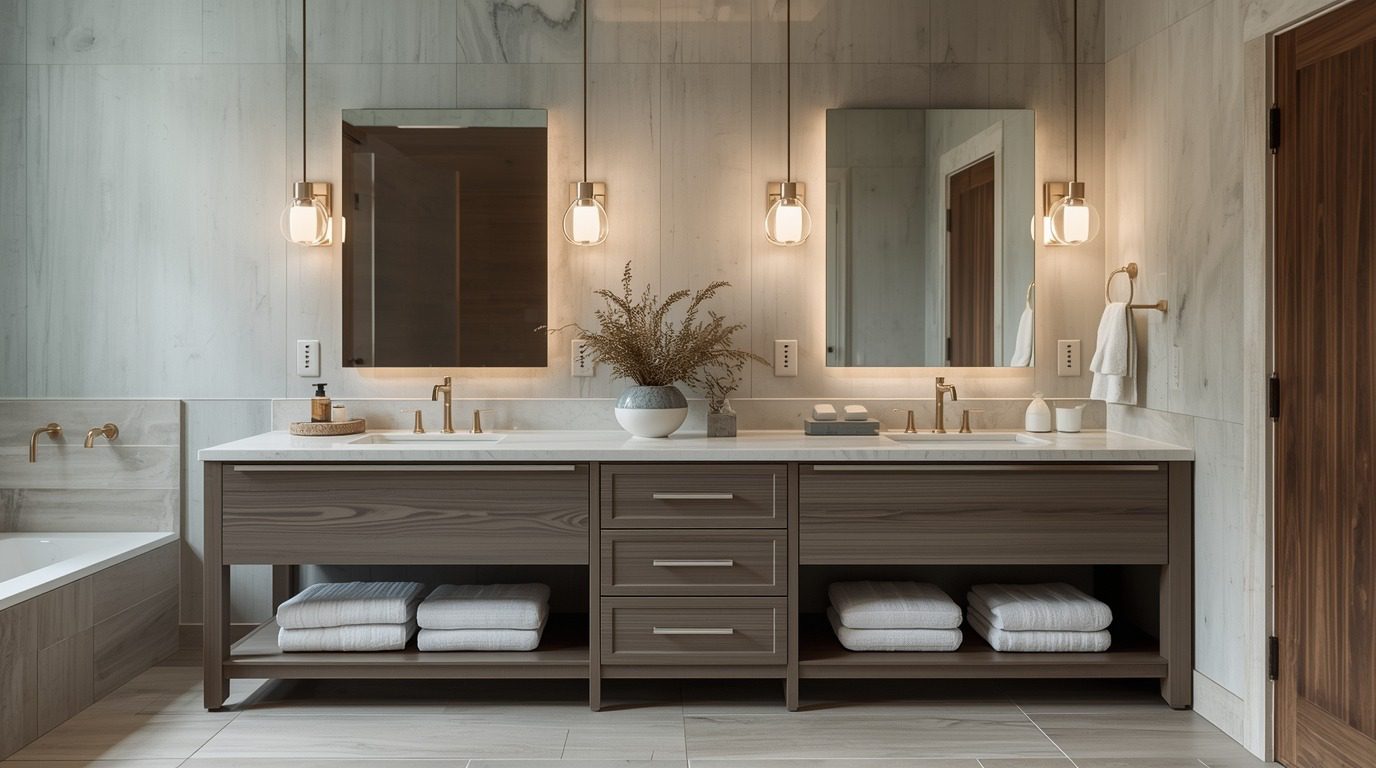
You get more space for yourself with two vanities. Each of you can have your own mirror-equipped, storage-equipped, and light-filled room. As a result, you won’t feel as rushed or stressed out while you get dressed, shave, or apply cosmetics. This is the type of considerate detail that elevates both design and general convenience.
Opportunities for Customization
An additional perk of a 96-inch vanity is the amount of customization options it provides. Standard, store-bought styles aren’t your only option. From classic to rustic to modern to ultramodern, there is a wide range of design choices to pick from.
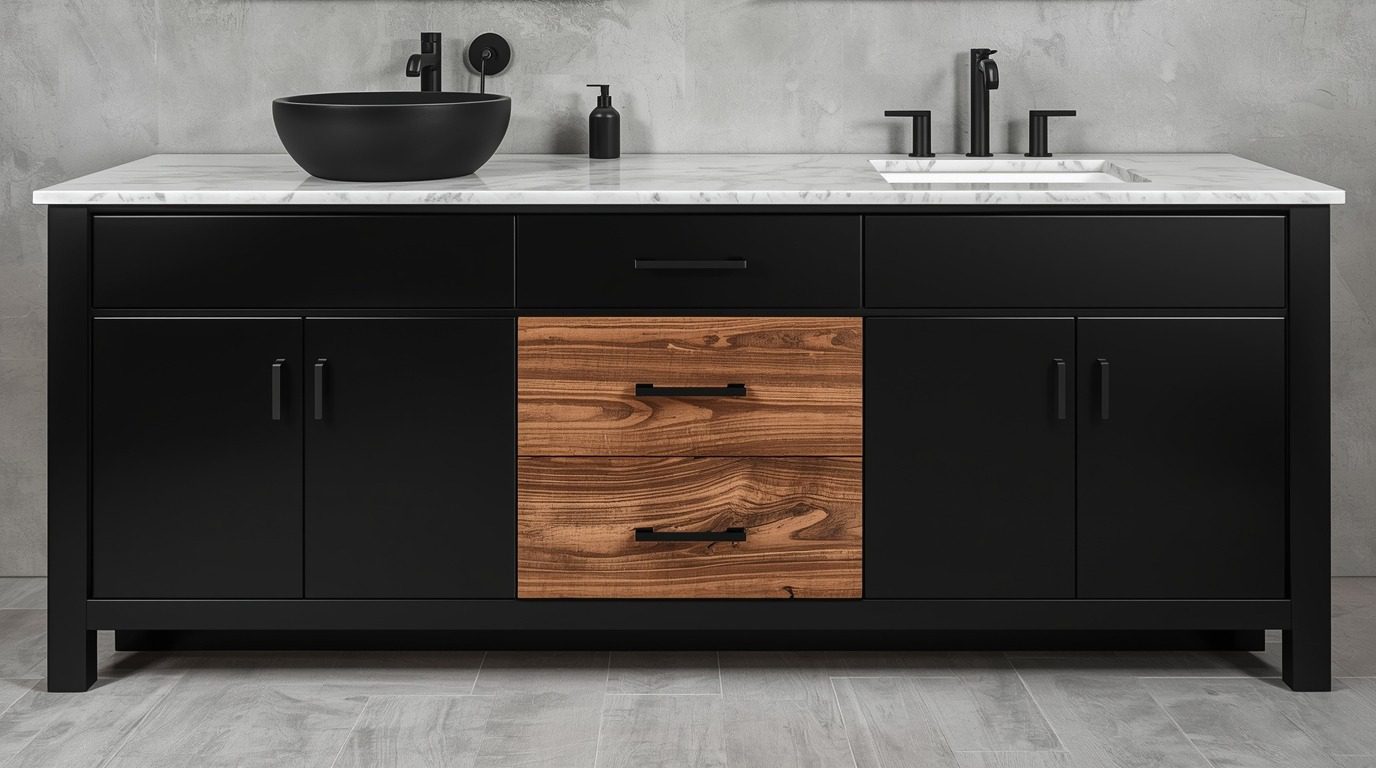
As for the finish, you have your choice of high-gloss lacquer, oak, or walnut. Choose between a bowl sink and an undermount sink. Match the hardware to the faucet and fixtures by selecting from a variety of finishes, such as matte black or brushed silver. Select quartz for its smooth, low-maintenance surface or marble for its timeless appearance. Your needs can be met even with countertops.
These large vanities might have built-in power outlets, pull-out organizers, or soft-close drawers to make them more practical without sacrificing their aesthetic.
Increases the Value of Real Estate
Adding a spacious, high-quality vanity to your bathroom can do double duty: simplify your life and increase your home’s resale value. Did you know that the bathrooms are often the first rooms that potential buyers inspect while touring a home? Having a gorgeous, contemporary cabinet with plenty of storage capacity will make your house stand out.
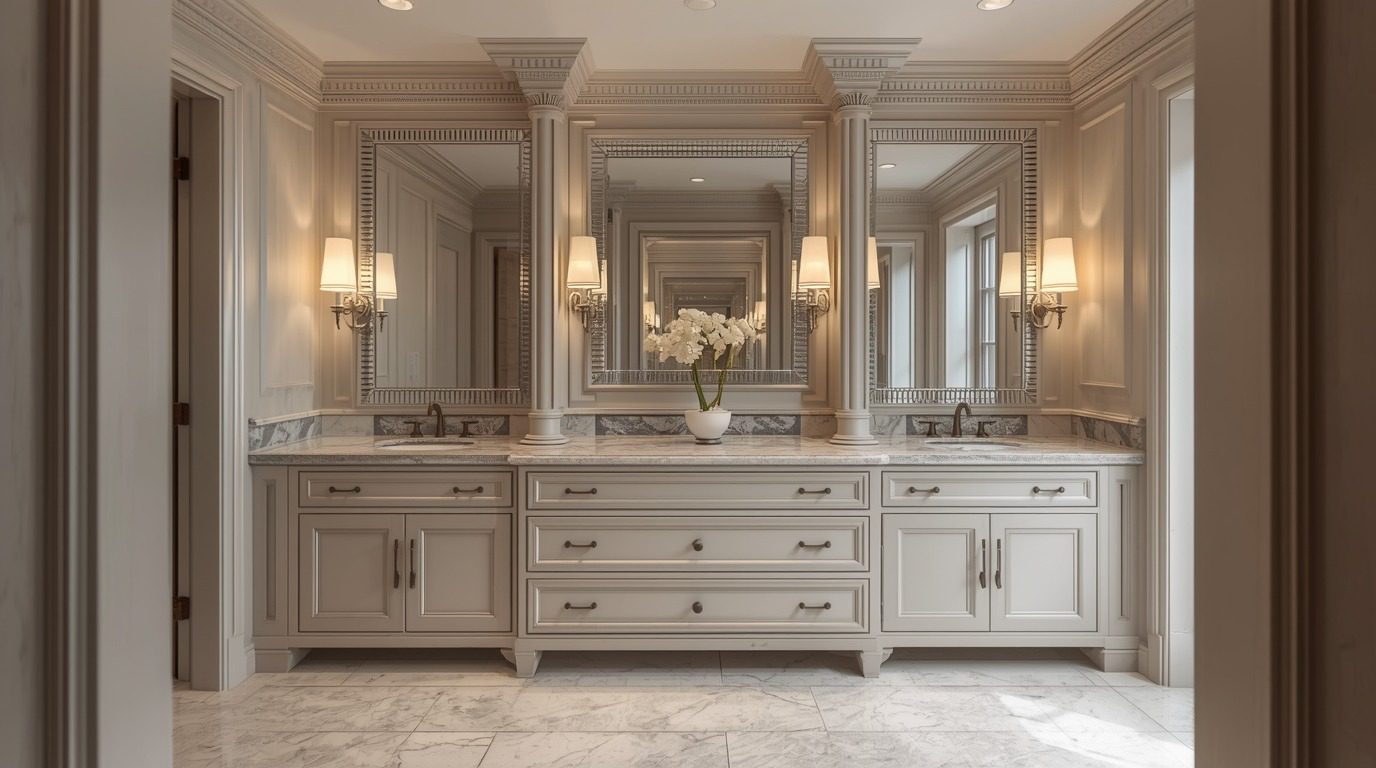
Many consumers seek out ostentatiously luxurious products with functional characteristics that improve their quality of life. Having a 96-inch workstation allows you to do two things. In a market saturated with boring designs, it adds a polished, well-planned appearance to the area, making it stand out.
Perfect for Bathroom Renovations
A 96-inch vanity is an excellent investment for any bathroom, but particularly for larger ones. It’s the most effective method for switching walls. Its perfect arrangement and natural balancing effect on the room create an atmosphere that is at once organized and soothing, thanks to its breadth.
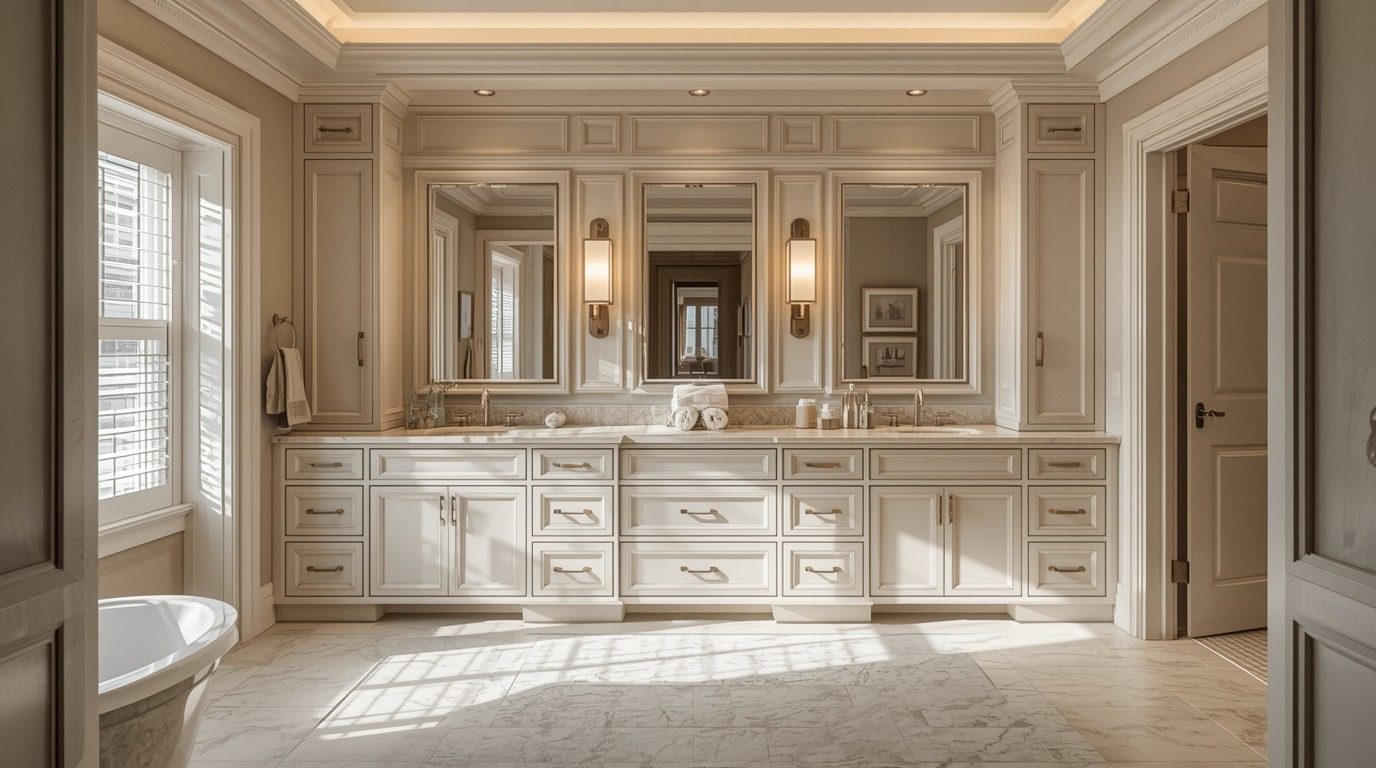
Improving the size of one’s vanity often addresses multiple issues at once, according to many homeowners. They get more room to store things, more organized space, more usable counter space, and a more aesthetically pleasing design. The purchase enhances both the appearance and the functionality.
Improves Lighting and Mirror Choices
Since this vanity is on the larger side, you have more room to play about with the lighting and mirrors. Above each sink, you can place a pair of mirrors and sconces; alternatively, for a more dramatic and luxurious effect, you can place a single large mirror that spans the entire vanity.
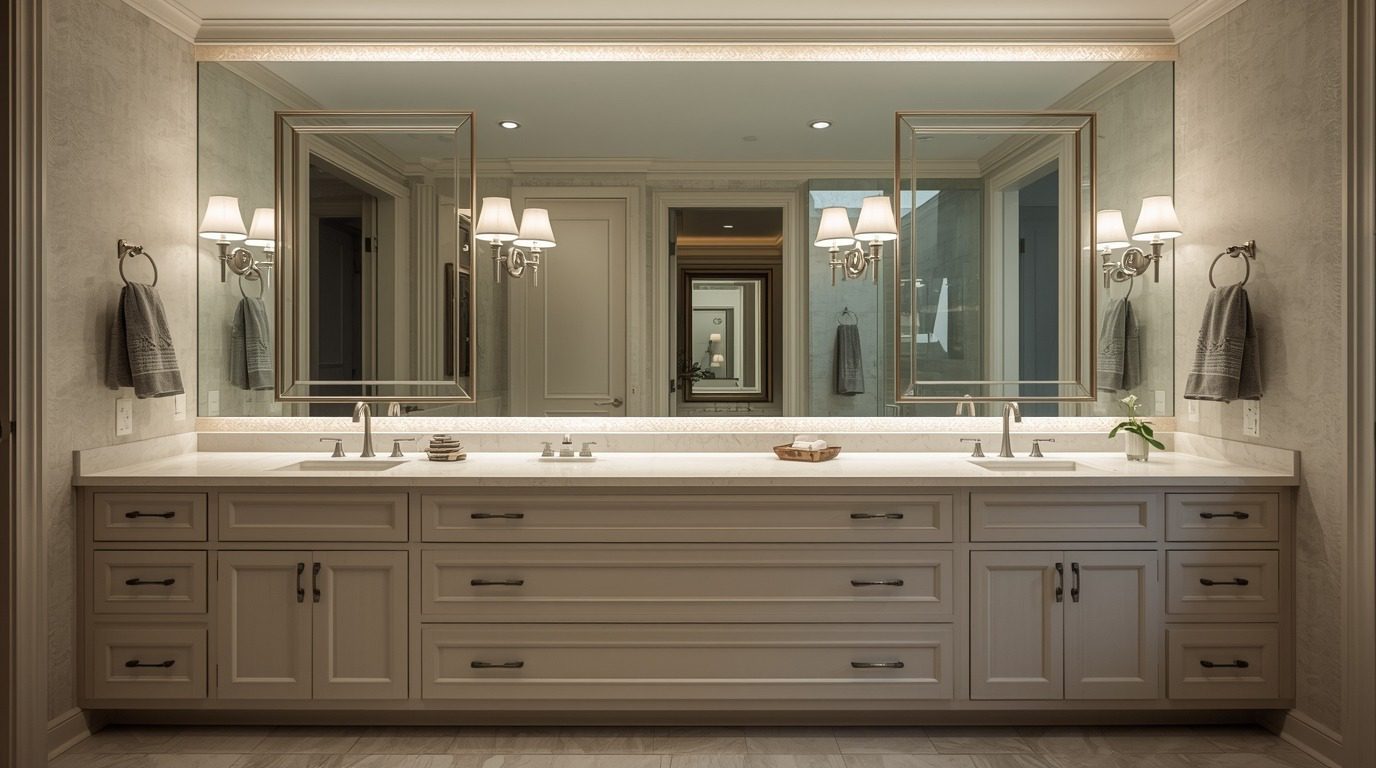
With the additional width, it becomes much easier to install overhead lighting, task lighting, or even ambient LED backlighting. These lighting adjustments do more than simply improve visibility; they also create an ambiance reminiscent of a relaxing spa.
The Perfect Blend of Function and Elegance
The 96-inch vanity is one of a kind since it combines practicality with opulence. It’s also a lovely piece of furniture that makes your bathroom more organized, efficient, and pleasant to use.
As a result, families are able to relax and enjoy life more. Individuals or couples can create a space for their daily rituals that seems luxury and well selected. It’s spacious enough to make you feel pampered and practical enough to improve your everyday life.

